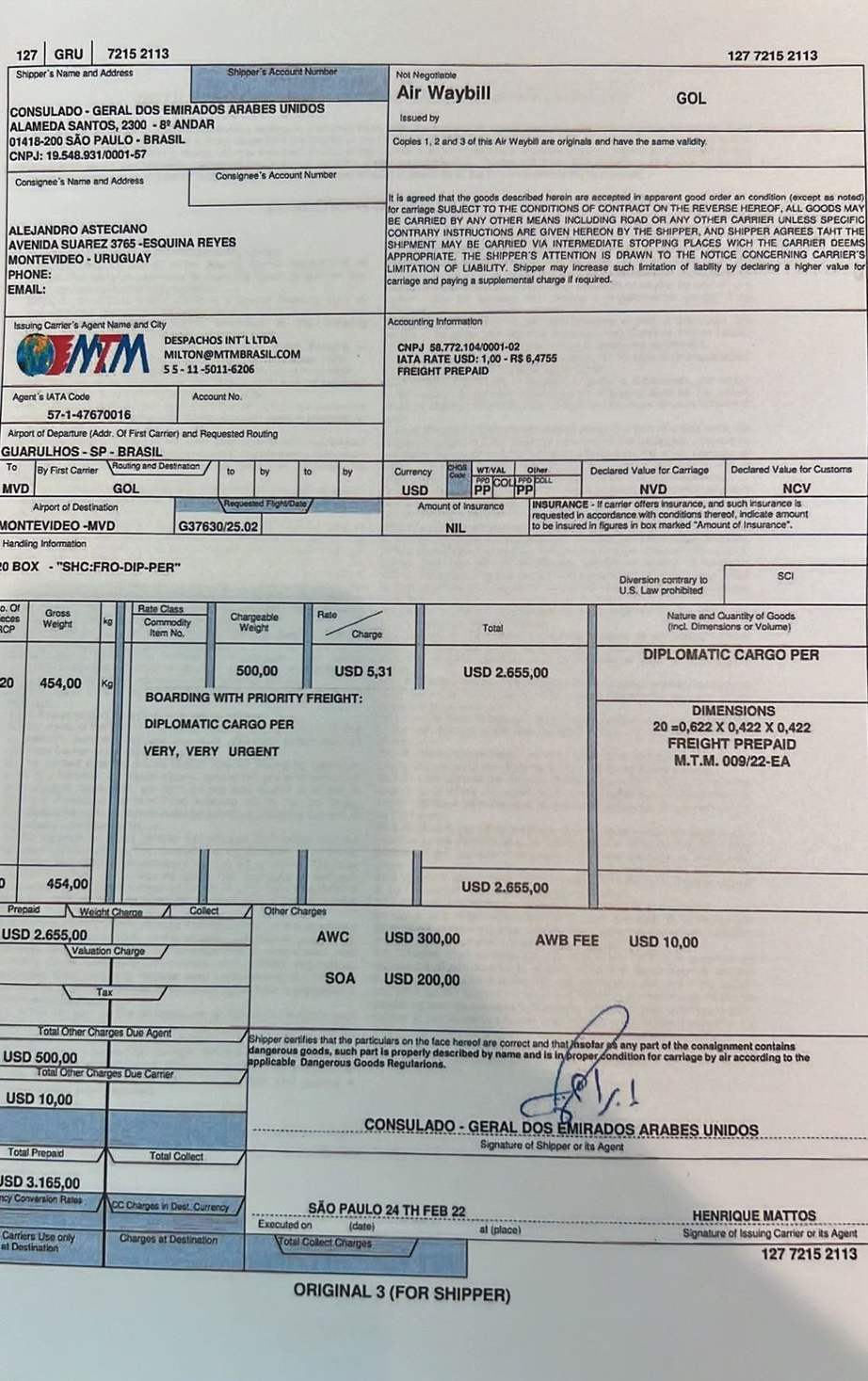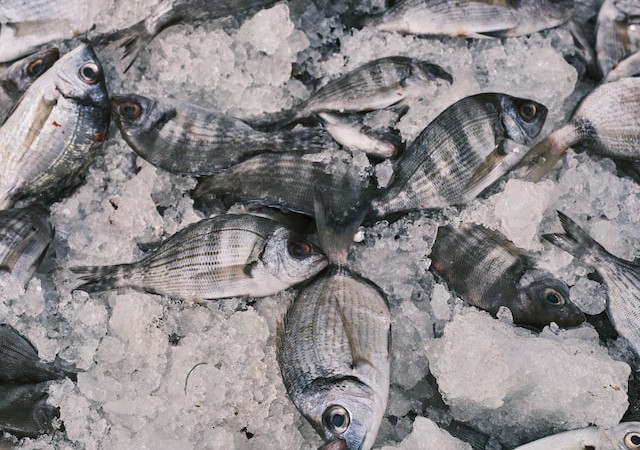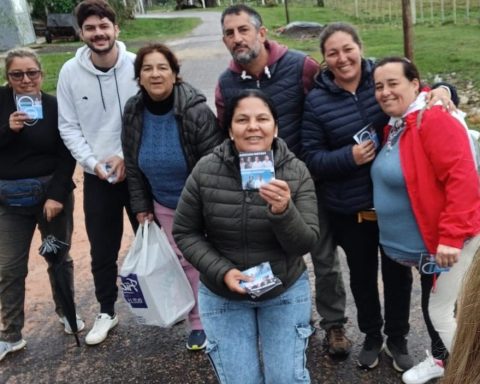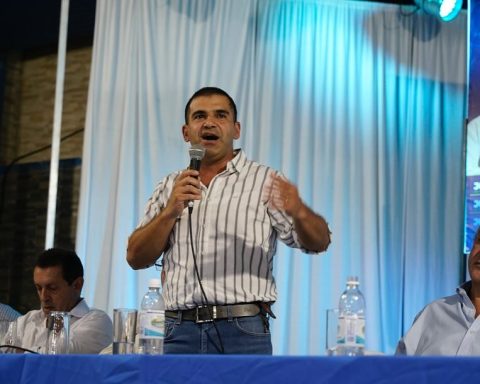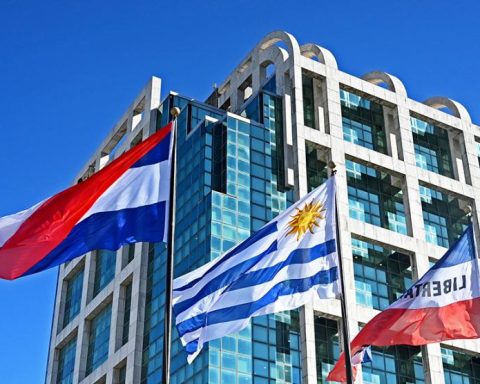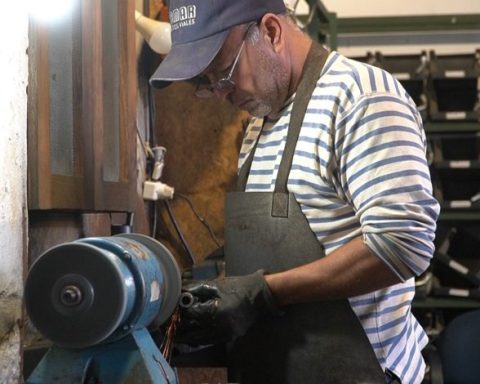
Last Friday, the Broad Front made a request for information to find out what the alleged diplomatic bag sent to Luis Lacalle Pou from Dubai with the mediation of the former presidential custodian, Alejandro Astesiano (indicted as the leader of a network for the sale of false passports), in which there would be “a load of frozen fish.”
The request for information was made by the FA deputy, Gustavo ‘Tato’ Olmos and is addressed to the Ministry of Foreign Affairs (MRREE): the diplomatic bag contained 454 kilos of fish, according to documents that have circulated in recent hours and that it was marked as “very very urgent” by its senders.
“We consulted MRREE about the diplomatic bag with 454 kilos of frozen fish that President Luis Lacalle Pou confirmed that he received and that it is ‘to eat.’ Did you know about the Foreign Ministry? Was sanitary authorization managed? It arrived in February and started to smell bad in November, ”Olmos wrote on his Twitter account.
“Based on press information, based on what emerges from the cell phone seized from the head of Presidential Security, Alejandro Astesiano has made it public that at the end of February 2022, he had contacts with an official of the United Arab Emirates government,” he said. Olmos in his petition letter addressed to the president of the House of Representatives, Ope Pasquet.
The story of the suitcase
The former custodian of Lacalle Pou and close friend of the Lacalle family, Alejandro Astesiano, is currently in pretrial detention accused of various crimes related to the network of selling false passports to Russian citizens, which operated from the Executive Tower.
On September 15, Lacalle Pou and the head of the Federal National Council of the United Arab Emirates, Saqr Ghobash, met in the Executive Tower, a meeting that, according to the WhatsApp chats taken from Astesiano’s phone (specifically, from the chat #621), would have been coordinated by him. Also present at the meeting were senators Germán Coutinho (PC) and Jorge Gandini (PN), and a delegation of Arab diplomatic officials.
On August 26, Astesiano received a message from an official from the embassy of the United Arab Emirates in Buenos Aires, Argentina, with whom he had already spoken a few months before after the visit of Lacalle Pou and a delegation from the Presidency to Expo Dubai.
“I have very important news. Next month, the third most important person in the Emirates government is going to visit Uruguay,” the Arab government official wrote. “Perfect”, answered Astesiano.
“The president of parliament who is going to lead a parliamentary delegation (…) He would like to have the honor of having a meeting with Mr. President. Can you help us get this request across?” the Arab official continued.
“Of course. I’ll talk about it and let you know,” Astesiano responded quickly. “We had submitted a formal request through the Foreign Ministry, but we have not received anything yet. I’ll give you the official info,” explained the diplomat. “Okay, I speak it. Same Monday”, said Astesiano, a few minutes after noon on Friday the 26th. “Super grateful”. “Always the order”. emoji. There he closed the exchange.
Before the meeting began to be coordinated, Astesiano and the same official had exchanged WhatsApp messages, for example, in February 2022, when the Emirati asked him about a “load of frozen fish” that was dispatched in Dubai, to find out if it had arrived safely in Montevideo.
“When we were in Dubai they asked us for an address and whose name. The president gave his address and put my name. But they never told us that we had to pick it up at the airport. Always in Dubai they said that the package arrived at the house of the president. The question is is that cold? We would send it to the airport” (sic), wrote Astesiano on the afternoon of February 28.
A “very very urgent” suitcase
A few phone calls later, Astesiano forwarded a communication to the Buenos Aires diplomat with another based in the Consulate of the United Arab Emirates in São Paulo, Brazil. “The fish is coming from the Emirates at the moment and will arrive in São Paulo this afternoon. We are working to be able to release this cargo as soon as possible to dispatch this cargo on the Gol G37630 flight tomorrow,” said that message. A few days later, on March 7, Astesiano confirmed to his Arab interlocutor that the “load” had reached its destination.
A document revealed by the Twitter account @Deldichoalhech5 appears to be an official paper from the customs brokerage company MTM Despachos Internacionais LTDA, based in Jabaquara, São Paulo, which reads the same flight: the airline’s G37630 Goal.
With the IATA (International Air Transport Association) code 57-1-47670016, the dispatch document speaks of 454 kilos of diplomatic cargo in a package sent as “very very urgent.” The shipping dimensions are: 0.622×0.422×0.422. The value given was US$2,655.00.
It has the signature of an unidentified official of the Consulate General of the United Arab Emirates in São Paulo.
According to current Uruguayan legislation, it subscribes to the Vienna Convention, which establishes that a diplomatic bag cannot be opened or retained at borders or customs and could not contain elements such as frozen fish. “The packages that constitute the diplomatic bag must be provided with visible external signs, indicators of their character, and may only contain diplomatic documents for official use,” said convention reads.
“The diplomatic courier, who must carry an official document stating his status as such and the number of packages that make up the bag, will be protected, in the performance of his duties, by the receiving State. He will enjoy personal inviolability and may not be subject to any form of detention or arrest ”, continues the Vienna Convention.
